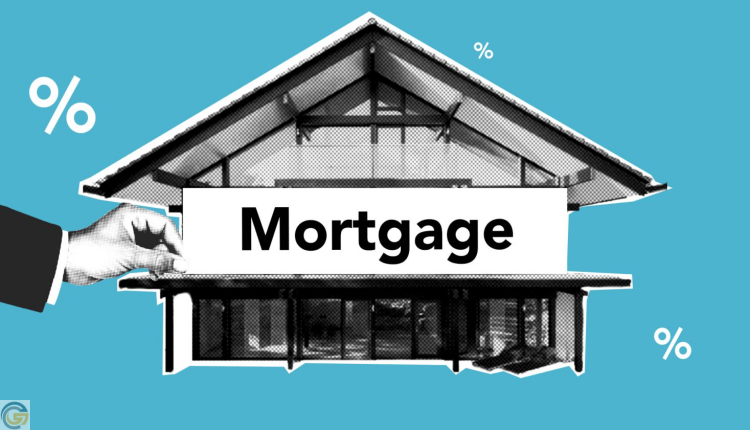FHA Loans With Collections
This blog will cover and discuss qualifying for FHA loans with collections. Homebuyers do not have to pay outstanding collection accounts to qualify for an FHA loan per HUD agency guidelines. However, many homebuyers get conflicting reports from different mortgage lenders about requiring whether or not collection accounts need to be settled for a mortgage.
Homebuyers can qualify for FHA loans with collections without worrying about paying the outstanding balance. Non-medical collection accounts need to be taken into consideration. 5% of the outstanding balance on non-medical collections is as a hypothetical debt for debt-to-income ratio calculations. Medical collections is exempt from the 5% rule.
HUD, the parent of FHA, does not require collections to be paid. However, individual mortgage lenders can require borrowers to pay outstanding collections due to their lender overlays. Lender overlays are higher lending requirements above and beyond the HUD agency guidelines. In the following paragraphs, we will cover HUD agency guidelines on FHA loans with collections.

Can You Qualify For FHA Loans Collections?
Many home buyers are confused about whether or not they can qualify for FHA loans with collections. Many home buyers go to their local banks, credit unions, and mortgage brokers and are told they do not qualify for FHA loans with collections.
Many mortgage borrowers are often told they need to pay outstanding collections and charged-off accounts when they go on the internet and search the world wide web and research and look into blogs. They are told they can qualify for FHA loans collections without paying off the outstanding collection account balance. So who is right and who is wrong? This article will discuss and cover FHA Loans collections.
Do All Lenders Have The Same Requirements on FHA Loans?
So many mortgage lenders tell home buyers that they cannot qualify for FHA loans with collections because of their lender overlays. Lender overlays are lending requirements in addition to the minimum FHA Lending Guidelines set by the United States Department of Housing and Urban Development, also known by many as HUD. HUD is the parent of the Federal Housing Administration or FHA. Homebuyers can qualify for FHA loans with collections. HUD does not require borrowers to pay off unpaid outstanding collection accounts to qualify for loans.
Most lenders, especially banks, will require that outstanding collection accounts be paid off in full for borrowers to qualify with their financial institution. This is unnecessary if borrowers choose lenders like Mortgage Lenders For Bad Credit.
Mortgage Lenders For Bad Credit are mortgage brokers licensed in 48 states, including Washington DC, Puerto Rico, and the U.S. Virgin Islands. We have wholesale mortgage lenders with no overlays on outstanding collection accounts. Borrowers will not need to pay off any unpaid outstanding collection accounts to qualify for an FHA loan.
How Does HUD Look at Collection Accounts
Borrowers can qualify for FHA loans with collections without paying the outstanding balance. HUD divides collection accounts into two categories:
- Medical Collection Accounts
- Non-Medical Collection Accounts
5% of the outstanding balance on non-medical collections is a hypothetical debt on collection accounts over $2,000. Non-medical collections are exempt from the 5% rule.
How Does HUD View Medical Collection Accounts
Medical Collection Accounts are treated much more favorably than non-medical collection accounts. With HUD Guidelines, borrowers can have unpaid outstanding medical collection accounts. None of it will be considered when calculating the borrower’s debt-to-income ratios.
With non-medical collection accounts, the borrower does not have to pay off any outstanding unpaid collection account balance. But 5% of the unpaid outstanding collection account balance will be considered on any collection balance greater than $2,000 in debt-to-income ratio calculations.
Even though borrowers do not have to make any payments on any unpaid outstanding collection account balance, 5% of the outstanding collection account will be used and treated like the borrower’s monthly debt. This 5% rule can disqualify many borrowers if the outstanding unpaid collection account balance is large.
How Do Mortgage Underwriters Look at Collection Accounts
We will review a recent case scenario to explain better how mortgage underwriters work with collection accounts. A borrower has $20,000 in unpaid outstanding collection account balances. 5% of the $20,000 or $1,000 will be a monthly debt. This holds true even though the borrower does not have to pay that amount. That $1,000 per month equals a $200,000 mortgage P.I.T.I. and can automatically disqualify any borrower due to exceeding the maximum debt-to-income ratio caps.
Written Payment Agreement With Credit For FHA Loans
For those with a substantial outstanding unpaid collection account balance, HUD will allow the debtor to enter into a written payment agreement with a creditor. Whatever the monthly payment agreement is, that payment agreement can be used instead of the 5% of the unpaid outstanding collection account balance in the borrower’s debt-to-income ratios calculations.
Again, this only applies to non-medical collection accounts with outstanding balances, not medical ones. Medical collection accounts can be exempt no matter how much the unpaid outstanding medical collection account balance is. This holds true unless the borrower’s particular lender has overlays on unpaid outstanding collection accounts.
Can I Qualify For an FHA Loan With Charge-Off Accounts
Borrowers can qualify for FHA Loans with charged-off accounts. Charge-off accounts are not calculated on the debt-to-income ratio calculations of Borrowers and do not have to be paid off. Many mortgage lenders have overlays on charge-off accounts where they want the borrower to pay off the charge-off accounts. However, that is not necessary.
Borrowers who consult a lender and the lender mandates to pay off the charge-off accounts or unpaid outstanding collection accounts, please get in touch with us at 800-900-8569 or text us for a faster response. Or email us at gcho@gustancho.com
Mortgage Lenders For Bad Credit has no lender overlays on outstanding collection accounts and charged-off accounts. Charge-off accounts have balances reflected on them on consumer credit reports. That balance means that that amount was charged off and did not mean that the amount listed on the charge-off account is what the consumer owes.
FHA Loans With Charge-Off Accounts
There are times where Borrowers had a prior foreclosure or deed-lieu-of foreclosure, and there is a mortgage charge off after the borrower’s home loan has been foreclosed on. There is no waiting period after a second mortgage charge-off. There is a three-year waiting period after the first mortgage charge-off date.
HUD does not require to take any portion of the charge off accounts into the 5% of the charge-off account balance to be used for debt-to-income ratio calculations. It is differently treated than FHA loans with collections.
The waiting period start date is reflected on the consumer’s credit report with an outstanding unpaid balance on a mortgage charge. This applies for both a first mortgage charge off. The waiting period after a mortgage charge-off is four years from the mortgage charge-off date, reflected on the borrower’s credit report to qualify for a conventional loan by Fannie Mae or Freddie Mac.
Qualifying With Lender With No Overlays
Borrowers said they do not qualify for FHA loans collections by a bank or different mortgage lender; please get in touch with us at Mortgage Lenders For Bad Credit at 800-900-8569 or text us for a faster response. Or email us at gcho@gustancho.com. We do not have any FHA Investor Overlays with collection accounts or any other government and conventional loans. We go off the automated findings of the Automated Underwriting System and do not impose any investor FHA overlays. We are available evenings, weekends, and holidays seven days a week.
This blog on FHA loans with collections was updated on May 10th, 2023.







